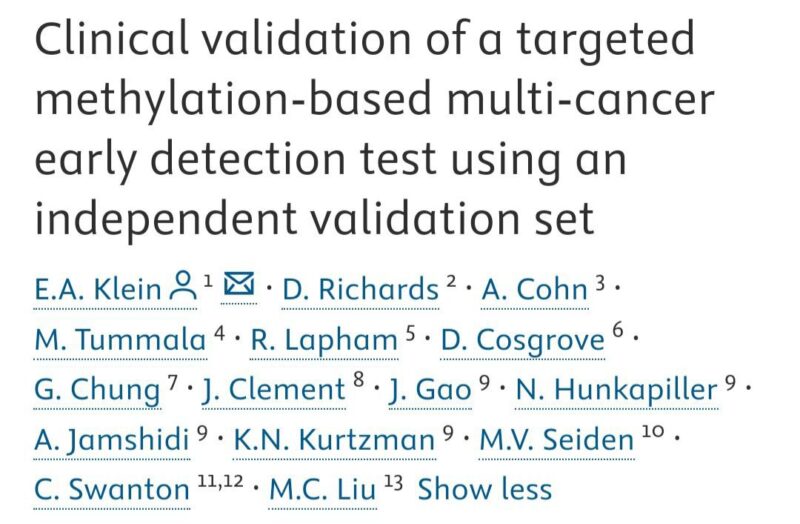GRAIL, a healthcare company dedicated to detecting cancer early when it is most curable, announced the publication of patient-reported outcomes (PRO) from the PATHFINDER study in Lancet Oncology.

The study focused on secondary and exploratory outcomes, assessing PROs and perceptions of multi-cancer early detection (MCED) testing.
Eligible participants in the PATHFINDER study, whether they received a “cancer signal detected” (CSD) or “no cancer signal detected” (NCSD) result, were assessed over 12 months.
The study examined factors such as anxiety, distress, uncertainty after result disclosure, health-related quality of life, satisfaction with the Galleri® test, and willingness to follow screening recommendations.
PROs were measured using three tools: the adapted Multidimensional Impact of Cancer Risk Assessment (MICRA) for distress, PROMIS Anxiety short-form for anxiety symptoms, and the Short Form 12-Item Health Survey (SF-12v2) for quality of life, along with a satisfaction questionnaire.
“Previous studies have shown that there is a temporary increase in anxiety symptoms after cancer screening, particularly for those with a test result indicating they may have cancerm, PRO results in the PATHFINDER study were consistent with other studies, demonstrating that the anxiety increase was transient. Participants expressed satisfaction with the screening process and were committed to following standard screenings alongside MCED testing. These findings suggest MCED could be a valuable tool for early cancer detection with minimal distress for patients.” – Lincoln Nadauld, lead author and CEO of Culmination Bio, Inc.

The study showed minimal distress associated with MCED testing. Participants with NCSD results often reported feeling “relieved about my test result.” Negative impacts linked to CSD results were minimal and returned to baseline within 12 months. Across all groups, satisfaction with the Galleri® test was high, and most participants indicated they were “likely” or “very likely” to adhere to future guideline-recommended screenings.
“As the pioneer in multi-cancer early detection, GRAIL is committed to evaluating not only the Galleri test’s performance but also its impact on patients, Collecting participant perspectives and providing appropriate support to cancer screening recipients may improve adherence rates and early detection. The PATHFINDER study’s PRO findings highlight the high satisfaction associated with MCED testing.” – Eric Klein, Distinguished Scientist at GRAIL

About GRAIL
GRAIL aims to detect cancer early when it is curable, addressing the global cancer burden through next-generation sequencing, population-scale clinical studies, and advanced machine learning. Its targeted methylation-based platform supports cancer screening, risk stratification, treatment monitoring, and precision oncology. Headquartered in Menlo Park, CA, GRAIL operates in Washington, D.C., North Carolina, and the UK.
Authors: E.A. Klein, D. Richards, A. Cohn, M. Tummala, R. Lapham, D. Cosgrove, G. Chung, J. Clement, J. Gao, N. Hunkapiller, A. Jamshidi, K.N. Kurtzman, M.V. Seiden, C. Swanton, M.C. Liu.



